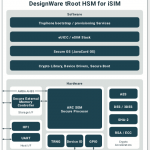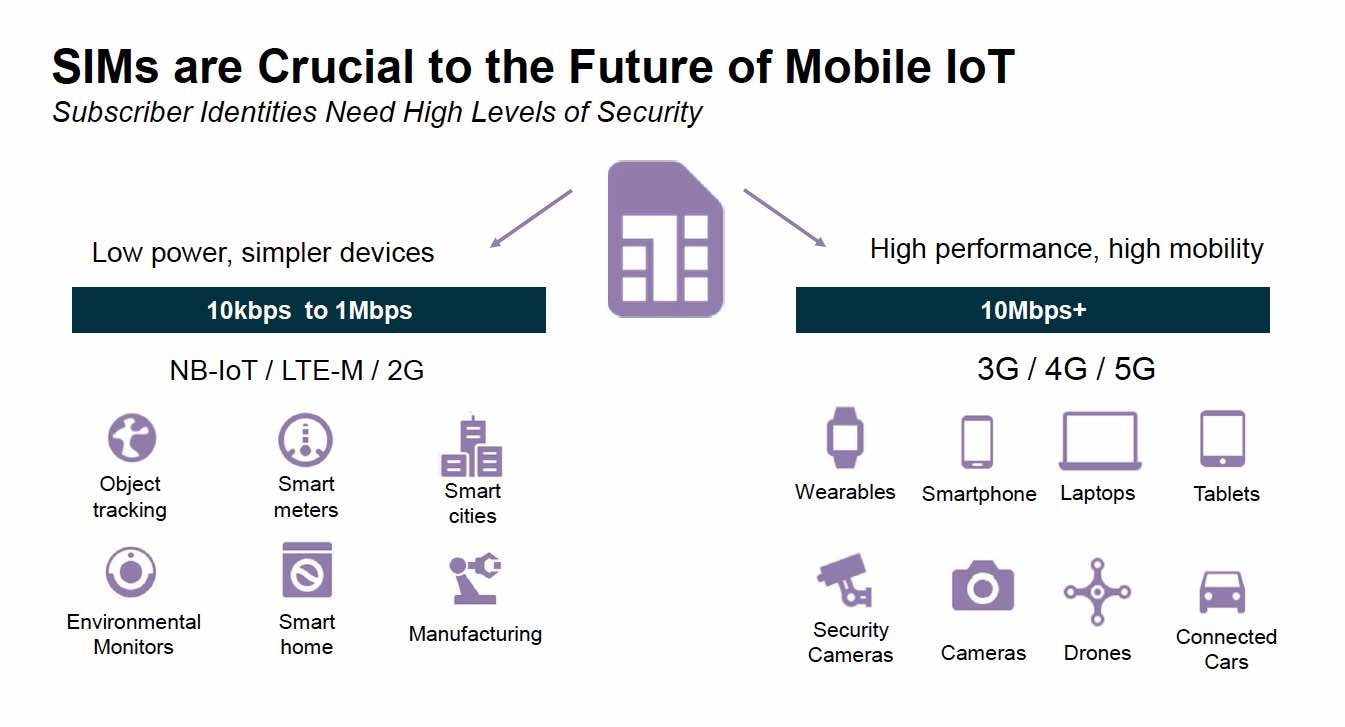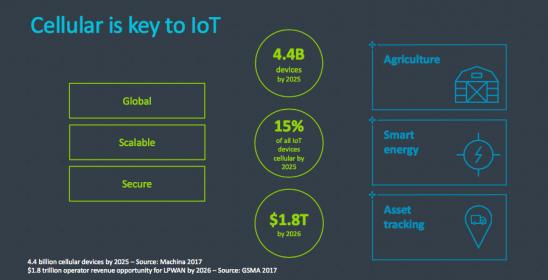The continued innovation and widespread adoption of connected devices — the internet of things (IoT) — has resulted in a vast range of conveniences that improve our lives every day. At the same time, the ubiquity of IoT devices, which market watchers estimate to be in the tens of billions, also makes it more attractive to bad actors… Read More
Tag: isim
Integrated SIMs Will Unlock IoT Growth
I’m a believer that connectivity for the IoT at scale (the trillions of devices that the industry predicts) has to be cellular. This is partly based on reach, particularly outside urban areas, but is mostly based on the financial implications of that scale. Yes, you can build infrastructure for say local Wi-Fi support with backhaul… Read More
The IoT will meet 5G soon, but not with the old SIM cards
By now you have probably realized that 5G is a lot more than an incremental change from previous 3G and 4G cellular technology. For instance, 5G will be used to connect our phones in completely new ways, such as with microcells in urban areas using mm-wavelength signals. 5G will also include two low power protocols that are intended… Read More
Synopsys Seeds Significant SIM Segue
It turns out that consumers are not alone in their love-hate relationship with SIM cards. SIM cards save us from increasingly widespread cellphone cloning. However, if your experience is anything like mine, it seemed that with every new phone, a new SIM card format was needed. Furthermore, people travelling overseas who wanted… Read More
ARM and embedded SIM
It seems that a hot ticket at Mobile World Congress this year was embedded SIM announcements. As a reminder of why this space is hot, cellular communication for provisioning and data uploads is a very real option for many IoT devices. In agricultural, smart energy and asset tracking applications for example, near-range options… Read More
How to Avoid Jeopardizing SoC Security when Implementing eSIM?
Smart card business is now more than 25 years old, we can assess that the semiconductor industry is able to protect the chips used for smart card or SIM application with a very good level (unfortunately, it’s very difficult to get access to the fraud percentage linked with smart cards, as bankers really don’t like to communicate on… Read More







